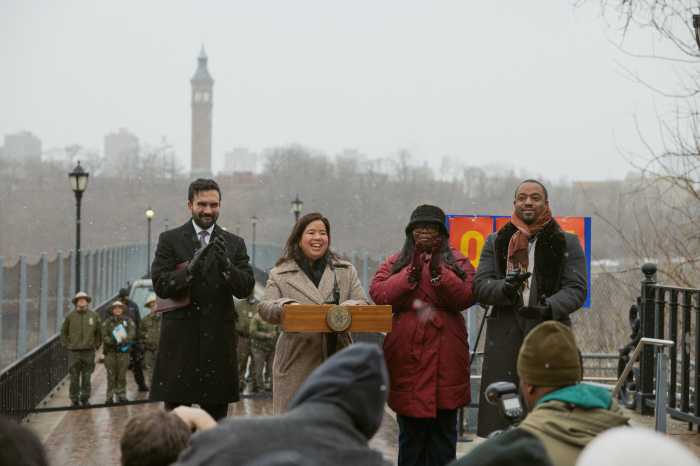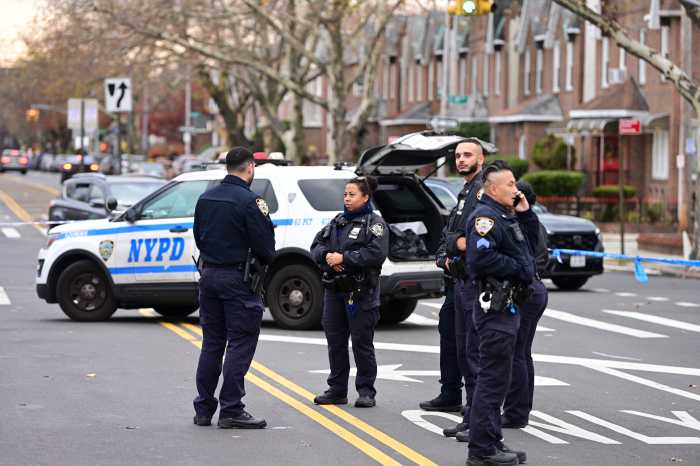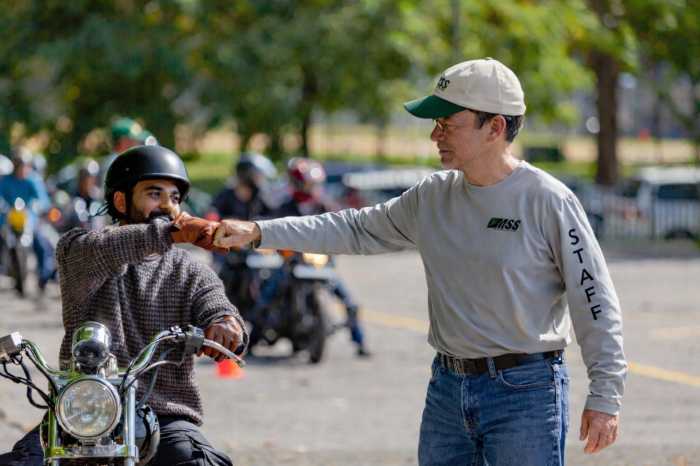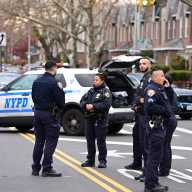An old Brooklyn color line
is fading.
Stores along Flatbush Avenue
that appealed to black consumers are being displaced by upscale national
chains with a broader appeal.
Fourteen businesses closed
this year, including two hair salons that catered to African-and Caribbean-American
women and a soul-food-themed barbeque place as purveyors of Pilates, carrot
juice and astutely branded leg warmers flock to the border between Park
Slope and Prospect Heights.
Even the notoriety of having
a famous son couldn’t save Mama Duke, owned by P Diddy’s mom,
which closed last year. The storefront is still vacant.
And the strip’s biggest
tourist (and foodie) attraction, Christie’s Beef Patties, is even
being forced out — albeit only across the street (for now).
“They are moving us out
to make room for multi-national chains,” said Paul Haye, owner of
the 40-year-old patty and coco bread landmark.
Haye said his landlord didn’t
renew the lease after a Crunch gym offered more money for the space.
Moonshine Realty, Haye’s landlord, declined to comment.
The highest-profile addition
to the strip is American Apparel, which opened two weeks ago in the former
Flatbush Pavilion.
The trendy clothing chain
sells its brightly colored basics using images of young people from all
over the globe, darlings of a mixed-race, youth-powered, Benetton-style
urbanism that is on the rise on Flatbush.
“Flatbush was more interesting
than the already gentrified streets nearby,” said Miguel McKelvey,
a location scout for the Flatbush Avenue American Apparel, the fourth
in the chain.
“The most important [thing]
is being in a community of people who are intelligent, sophisticated,
fashionable, forward-looking, interested, interesting, and excited about
the growth and development of our ever-changing culture.”
American Apparel says it caters
to shoppers of all races and creeds, as it conributes to the upscaling
of the avenue.
Mirvilyne Bruce, executive
director of the North Flatbush Business Improvement District, was excited
by the changes.
“Our turnover rate has
increased,” she said, “but we believe that more new businesses
in the area will mean more new shoppers.”
Longtime residents and shoppers
agree that Flatbush is changing for the better in one very noticeable
way. When Diane Allison started working at the Christian Science Reading
Room at Sterling Place and Flatbush in the 1970s, stone-throwing youth,
drug dealers and vacant buildings were the big problems.
“Now,” she said, On this “different” Flatbush, gyms are doing well — so
“the stores are having to respond to a different kind of community.”
well, that in addition to annexing Christie’s, Crunch will also take
over the 99-cent store next door.
But the newly gentrified strip
isn’t pleasing everyone.
The owner of Idalias Salon
— a stylish shop with a primarily black clientele — moved from
Flatbush to Washington Avenue last winter. Owner Darlene Dorsett said
her salon wasn’t really appreciated anymore.
“Landlords think the Yuppies — black or white — don’t
want salons,” said Dorsett, who is doing well at her new location
deeper into Prospect Heights.
It’s not always clear
which direction Flatbush is headed. A few months ago, Charcuterie, a classic
Park Slope sandwich shop, closed to make way for a Dunkin Donuts, which
should be peddling coconut lattes by summer.
“Maybe they think it’s
‘Park Slope East’ on Flatbush now, but definitively, the change
that is happening endangers what Brooklyn was originally and has always
been,” said the Rev. Clinton Miller of Brown-Baptist Memorial Church
in Fort Greene.























